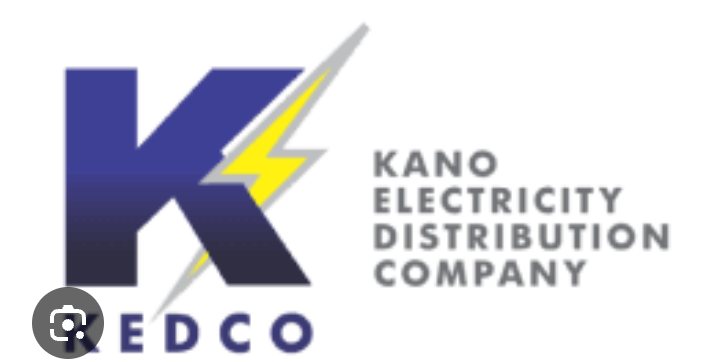News
Just in: Kaduna Electric disconnects govt house over N2.9bn electricity debt

By Kayode Sanni-Arewa
The Kaduna Electricity Distribution Company (KEDCO) has disconnected the Kaduna Government House over N2.9 billion debt.
The company in a statement signed by the Head, Corporation Communication, Abdulazeez Abdullahi, said the government house had not paid for electricity consumed in seven months.
Recall that in the early hours of Friday, the state government through its tax agency, the Kaduna State Internal Revenue Service (KADIRS) sealed the electricity coy over N600 million tax liabilities.
But Abdullahi said the disconnection took effect after extensive efforts to resolve the issue through consultations and reconciliations.
According to the statement, “In a dramatic move that underscores growing tensions between utility providers and state governments, Kaduna Electric has cut off electricity supply to the Kaduna State Government House and other state government accounts due to unpaid bills.
“Kaduna Electric announced the disconnection after extensive efforts to resolve the issue through consultations and reconciliations. The outstanding balance for electricity consumed from January 2024 to July 2024 alone amounts to a staggering N1,166 billion. This figure, including the historical debt, has left the State Government with a huge debt that currently stands at a total of N2,943 billion.”
He said despite a recent payment of N256 million made on May 9, 2024, for electricity consumed between September 2023 and December 2023, the Kaduna State Government’s debt remains significantly high, “This payment, though substantial, has not been enough to clear the accumulated arrears.”
“Kaduna Electric’s decision to disconnect power came after repeated attempts to address the payment issues, including several consultations with state officials. In contrast, other states under the Kaduna Electric franchise, namely Sokoto, Kebbi, and Zamfara, have maintained their accounts in good standing, regularly meeting their electricity payment obligations and other repayment obligations with Kaduna Electric.
“A disconnection notice was formally issued on July 21, 2024, and was received by the Office of the Governor on July 22, 2024. The move reflects the company’s need to meet its own financial obligations amidst the broader challenges facing the electricity sector,” he added.
He emphasized that the disconnection was a last resort after all other avenues for resolving the payment issue had been exhausted, noting that the company is now focusing on fulfilling its commitments to the electricity market and ensuring stability in its operations and sustainability as a company.
He disclosed that the Nigerian Electricity Regulatory Commission (NERC) had previously intervened in the Disco by installing an Administrator and Special Board to oversee the company during its transitional period prior to an official takeover by the current investors where the Administrator of Kaduna Electric had committed to an agreement with the Kaduna Inland Revenue Service to pay N20 million monthly including statutory monthly tax payments as required, which he said has been honored since takeover by the current Management.
He highlighted the urgent need for improved financial management and timely payments by government entities to avoid disruptions in essential services saying, “The public and stakeholders await further developments on how the Kaduna State Government will address the arrears and restore power to the affected government offices.”
News
Spokesperson Warns Nigerians Against Fake Ministry Of Foreign Affairs Recruitment Scam

By Gloria Ikibah


News
CBN announces revised documentation requirements for PAPSS transactions

The Central Bank of Nigeria (CBN) has announced a revised documentation requirement for transactions conducted through the Pan-African Payment and Settlement System (PAPSS) in Nigeria.
This was disclosed in a statement issued by the apex bank’s acting Director, Corporate Communications, Mrs. Hakama Sidi Ali
The CBN said the new initiative is part of its ongoing commitment to foster seamless intra-African trade, financial inclusion, and operational efficiency for Nigerians engaging in cross-border payments within Africa.
Launched by Afreximbank in partnership with the African Union and the African Continental Free Trade Area (AfCFTA) secretariat in January 2022, PAPSS serves as a centralized payment and settlement platform that enables instant, secure, and efficient cross-border transactions throughout Africa.
By facilitating payments in local currencies, PAPSS minimizes reliance on third-party currencies, reduces transaction costs, and supports the rapid expansion of trade under the AfCFTA.
In a recent circular referenced TED/FEM/PUB/FPC/001/006 issued on April 28, 2025, CBN outlined the key changes to the documentation requirements associated with PAPSS transactions.
The key changes it added take effect immediately and include simplified documentation for low-value transactions, which allows customers to now use basic KYC and AML documents provided to their authorized dealer banks for low-value transactions of up to $2,000 and $5,000 equivalent in naira for individuals and corporate bodies, respectively.
“For transactions above the thresholds, all documentation as stipulated in the CBN foreign exchange manual and related circulars remains mandatory,” the bank said.
Also, the CBN added that applicants are responsible for ensuring all regulatory documents are available to facilitate the clearance of goods, as required by relevant government agencies.
“Authorized dealer banks may now source foreign exchange for PAPSS settlements through the Nigerian foreign exchange market, without recourse to the CBN.
“All export proceeds repatriated via PAPSS shall be certified by the relevant processing banks.
“The Central Bank of Nigeria urges all banks to adopt PAPSS and commence originating transactions in line with this new policy.
“In addition, CBN encourages exporters, importers, and individuals to familiarize themselves with the new requirements and leverage PAPSS for cross-border transactions within Africa,” the statement said.
News
Reps Set Stage for Nigeria’s First Legislative Conference on Renewable Energy

By Gloria Ikibah
The House of Representatives is set to host the country’s first National Legislative Conference on Renewable Energy, aimed at driving new laws, attracting investment, and pushing Nigeria further along its energy transition journey.
This was revealed during a press briefing by the Chairman, House Committee on Renewable Energy, Rep. Afam Victor Ogene, who described the event as a turning point for energy legislation in Nigeria.
He said: “The conference aims at bringing together key stakeholders and industry players to discuss renewable energy legislations, energy transition, renewable energy financing, investment opportunities and related matters.
“It’s about developing a national legislative framework on renewable energy”.
The conference, which is being organised by the House Committee on Renewable Energy in partnership with the Office of the Speaker of the House of Representatives, and the United Nations Development Programme (UNDP), will take place under the UNDP Parliamentary Development Program.
Rep. Ogene noted that recent legal reforms have created space for state governments to play a more active role in Nigeria’s power sector. He pointed to the Fifth Alteration Bill 2022 (No.33), now signed into law, which allows states to legislate on electricity matters within the national grid. Before now, states could only act on off-grid power.
In addition, he highlighted the Electricity Act of 2023, which came into effect in February 2024.
“It permits states to issue licenses for all electricity activities – generation, transmission and distribution across the entire power sector value chain,” he said.
The Committee Chairman further stated that the new National Integrated Electricity Policy, expected in 2025, will guide states in forming new electricity markets, where solar power and other renewable sources will be key to reaching underserved communities.
Ogene explained, “The conference has three clear objectives:
“To promote dialogue among legislators, experts and stakeholders on critical legislative priorities.
“To establish a coordinated platform for federal and state lawmakers, and to produce a clear, time-bound legislative action plan.
“International partners are also on board. The Inter-Parliamentary Union (IPU) will participate, and parliaments from South Africa, Ghana and Gambia have confirmed attendance. Ghana is sending a three-man delegation led by the Deputy Speaker, Rt. Hon. Alban Kingsford Bagbin”.
In another major highlight, the Netherlands-based platform INCLUDE will host a Pan-African Legislative Dialogue session on renewable energy, to be chaired by the Hon. Speaker, Rt. Hon. Abbas Tajudeen.
“The session will focus on how to establish a unified legislative framework on renewable energy development, investment and financing.
“The time has come for us to act. This is not just another conference – it is the foundation of Nigeria’s renewable energy future”, Ogene added.
Expected outcomes from the conference include new policy and legislative reform proposals to boost renewable energy use, as well as draft laws that will encourage public and private sector investment.
Other goals are to enhance collaboration between federal and state lawmakers, raise public awareness, and roll out a practical roadmap for implementation and progress tracking.
The event will also feature a technology showcase of renewable energy innovations and business opportunities.
-

 Metro11 hours ago
Metro11 hours agoGunmen storm University of Benin teaching hospital, kill doctor
-

 Politics23 hours ago
Politics23 hours agoJust in: Ex- Gov Okowa accepts betraying Southern Nigeria, laments running with Atiku
-

 Metro11 hours ago
Metro11 hours agoFCTA destroys 601 motorbikes over violations
-

 News11 hours ago
News11 hours agoJust in: FG declares tomorrow public holiday
-

 News23 hours ago
News23 hours agoBoko Haram Kill Mourners, Kidnap Others In Borno
-

 News2 hours ago
News2 hours agoAlleged money laundering: EFCC produces Aisha Achimugu in court
-

 News23 hours ago
News23 hours agoDeputy Speaker Leads Defection of PDP Stalwart Chris Igwe, 13,000 Followers to APC In Abia
-

 News4 hours ago
News4 hours agoJUST IN: Major General Paul Ufuoma Omu Rtd, dies at 84






